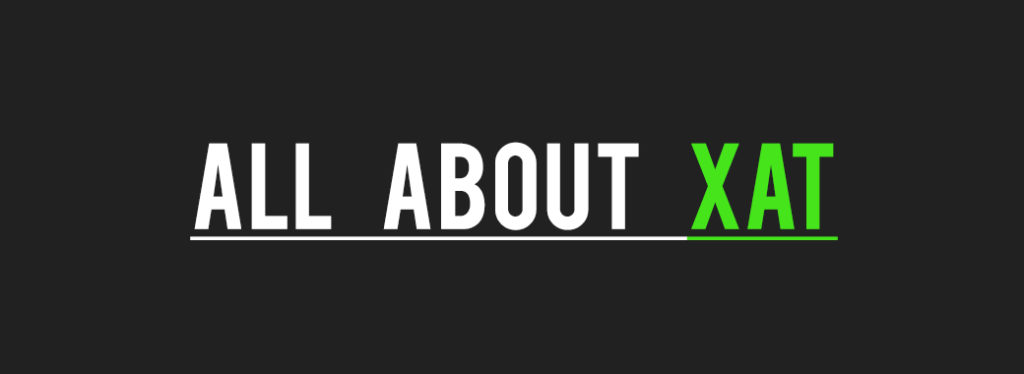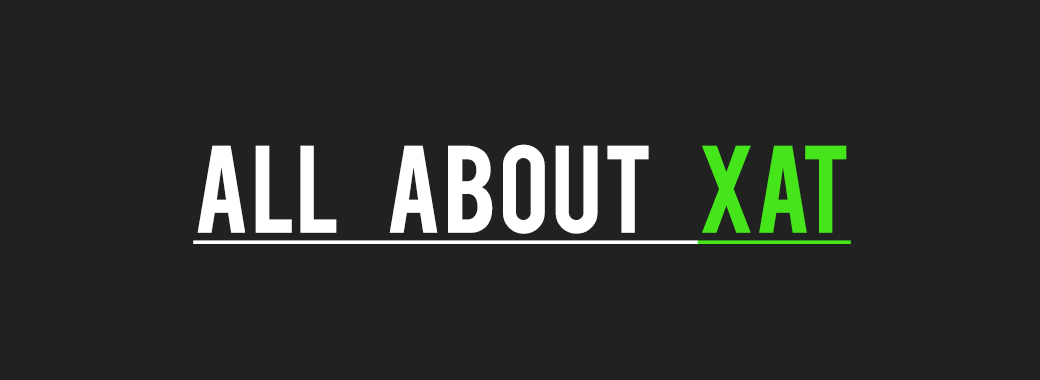
XAT is an aptitude test that helps you secure a seat in one of the esteemed B-Schools in India: XLRI. Here’s everything you need, from tips and tricks, to the FAQs answered by one of our alumni who recently got into this B-School.
- Eligibility:
- The candidates should be graduates in any discipline from a recognized institute or university.
- There is no specification regarding the minimum percentage to be obtained in graduation.
- The final year graduation students are also eligible to apply for XAT, provided they complete the degree by the stipulated time in that year.
- Examination date:
Registrations tentatively span from September to December. The exam is generally held on the first Sunday of January every year, followed by the final document submission by February.
- How to apply:
- The process is fully online. You need to visit the official website to get and fill the application form.
- Fill all the details accurately and then upload a recently clicked passport size photograph (scanned) and signature in prescribed sizes and then proceed to online payment.
You can use cash, net banking, demand draft, credit card or debit card for payment.
- The application fee is Rs 1,500. If you want to apply for XLRI as well, then you will have to pay Rs 1,750. (an extra of Rs 250).
- General Examination Pattern
The XAT exam pattern undergoes change every year. The number of questions in Paper 1 varies. Paper 2 is a mix of both objective as well as subjective questions, General Knowledge and essay writing. The following table brings to you the overall paper structure or exam pattern of XAT 2017:
| Sections | Number of Questions | Duration |
| Paper 1- (Quantitative Ability & Data Interpretation, Verbal Ability, and Decision Making & Analytical Reasoning) | 26 23 29 Total – 78 | 170 minutes |
| Paper 2- (General Knowledge, Essay Writing) | 25 | 35 minutes |
- Marking Scheme
Each question carries 1 mark and for each wrong answer, there is negative marking of 0.25 marks. A candidate can leave out 13 questions unattempted, beyond which there will be negative marking of 0.05 marks.
- Duration
The total duration of the exam is 3.5 hours. Paper 1 will be of 170 minutes, i.e. 2 hours 50 minutes and after a break of 5 minutes, candidates have to start with Paper 2, the duration of which is 35 minutes.
- Selection procedure:
“Every B school gives importance to various parameters while selecting a candidate, including the written exam, the interview, group discussion, work experience, previous grades (10th, 12th, graduation), etc. But as Indian B schools go, or XLRI in particular, the importance given to your past grades is very nominal when compared to, for instance, the XAT exam, which made up 60% of our batch’s selection criteria. So, even if you haven’t done too well in engineering, do not be disheartened. It shouldn’t stop you from applying to a B School. Work hard for the rest of the components and you’ll be just fine!”, says Computer Science engineer, Harleen Kaur Dhillon, currently in XLRI, Jamshedpur, after having completed her B. Tech this year (2016) from Manipal Institute of Technology. She, very comprehensively, shares her take on and experience of the exam.
“The XAT exam consists of three parts: Quantitative Ability, Decision Making and Verbal. The most important section depends on what you’re weakest at. I have noticed that many people find decision making to be the trickiest, while I personally found it the easiest, and Quant the hardest to crack. So, give maximum importance to what you think is the toughest for you, because you need to clear a section wise cut off in XAT too, other than clearing an overall cut off. The rest of the process includes answering a few behavioral questions in a form, a video submission and further, an interview and a group discussion on making it to the shortlist. I, personally, found the process to be quite rigorous in evaluating a candidate as a whole, and in every individual aspect. Hence, my suggestion is to remain honest in everything you answer and not go by any cliched answers you might have been asked to mug up for some cliched questions, because believe me, they won’t work. B-School professors are smarter than that.
Your first priority should obviously be preparing for the written exam, as that holds maximum weightage for making it to the interview shortlist. Next, I would suggest that you stay in touch with current affairs. Read a lot of newspapers. I know, we engineering students do not have a habit of doing that (I didn’t either), but it helps immensely during an interview or a GD. If you have your facts right, it surely will leave an impression.”
What kind of essays do they ask you to write in the second paper? Also, how much weightage do essays carry?
“Mostly, colleges will give very varied weightage to the essay questions. Also the stage of the procedure in which they ask you to write essays will vary depending on the college. The common questions I have noticed are mostly about personal experiences such as a difficult time you might have faced, or a failure you have had, etc. My advice would be to be honest while answering questions instead of trying to put down something that you think will look impressive.”
What study material and references do you suggest for XAT aspirants?
“There are so many options available online nowadays which can offer you specific ways to prepare for every kind of exam and interview. I personally, thoroughly followed pagalguy.com, which gives you real interview experiences of people applying for an MBA in India. But there is no end to all that is available on the internet nowadays; so go ahead and make good use of it.”
When asked about how students should prepare for the personal interview, she said, “The written examination and the personal interview are completely different from each other, hence the preparation varies a lot too. To ace an interview, you really need to be in touch with what is going on around the world. Read newspapers, read online journals and articles instead of staying up scrolling through social media. That’s rule number one. Next, you need to be confident in all that you say, and also have the confidence to be honest enough to admit that you do not know of something instead of trying to cook up facts. Body language, too, is a very important aspect of an interview. It says a lot about your behaviour and how you are as a person. If you feel you’re not groomed well enough in terms of body language, or speech or your content itself, then do practice with your friends, family or anyone who is willing to help. Mastering an interview takes time and effort to build if it doesn’t come naturally to you. Find out what your weak spots are and work on them.”
On what points are students mostly evaluated in the interview?
“This is quite subjective depending on your interviewer and what kind of a position or college you are applying for. Some might look for certain character traits, while others might look for pure knowledge. An interview is a tool that helps to look right through you to know how you are as a person and how much real knowledge you possess. The interviewer will try to put you in situations which will bring your true self and behaviour to the front, to know if you are a fit for what he has to offer. Interviews make you think on the spot, unlike written exams which give you the time to think and formulate your answers. So, your ability to think on your feet, and how much you actually know of something will not stay hidden in an interview.”
Some specifically interesting questions that you were asked in the interview?
“Interview questions vary with what the interviewer is trying to look for. Some of mine were pretty much fact based, like questions related to my field of study during under graduation or from current affairs. Others were very general: questions about what I enjoy doing and what my past experiences have been in life. Then the interviewer will usually pick up one point you have talked about in the interview and will question you further on it. So, be very particular that whatever you are saying, or putting on your CV is the truth because be assured that you will be caught if you try to forge anything. Two common questions I faced in all the interviews though were ‘Tell me something about yourself’ and ‘Why do you want to move on to management after engineering?’, so think about some basic things you would want to say before heading to the interview. Be confident and clear.”
- Top Universities / Colleges:
“Top few Indian B Schools, I would say, are IIM-A, IIM-B, XLRI, IIM-C, SP Jain, MDI, FMS, and then the list continues. What you need to keep in mind while joining one is what major you want to pursue. Every campus has a speciality. For example, XLRI is the best in Asia for its HR, and known in India for marketing. SP Jain too is a marketing campus, while JBIMS is known for finance. So, choose wisely.”
For any related queries you can contact Harleen Dhillon, currently pursuing her MBA at XLRI.
Contact No. +91 9740466321
E-mail ID: [email protected]
Facebook: https://www.facebook.com/harleen.dhillon.75


Leave a Reply
You must be logged in to post a comment.